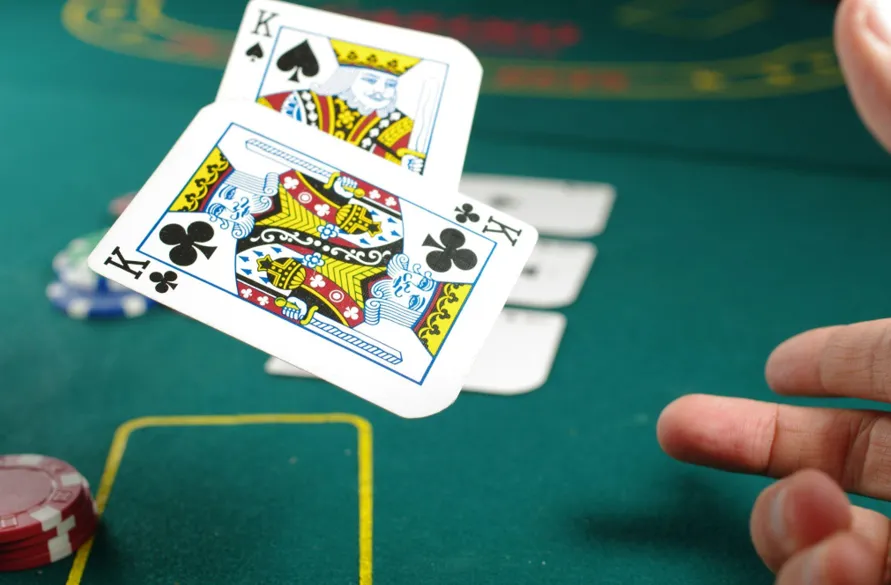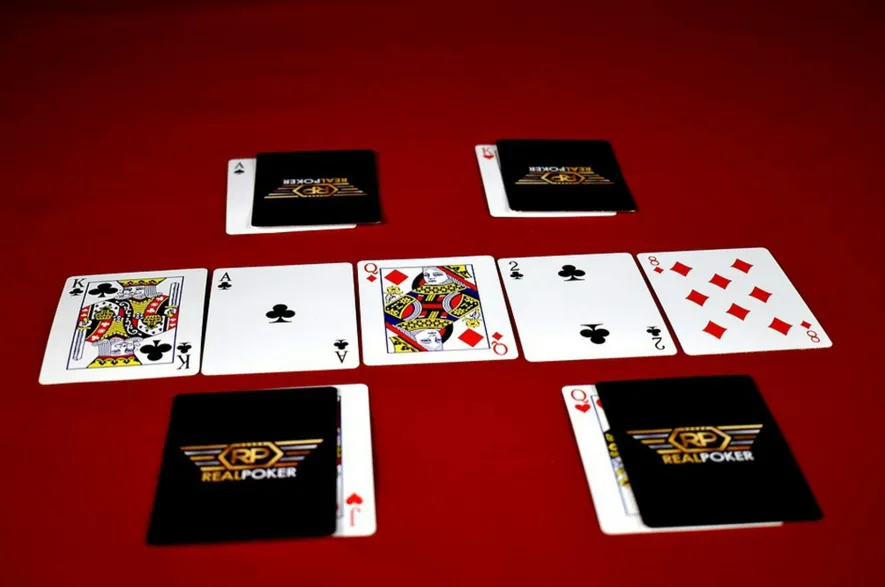Last updated on July 20th, 2025 at 04:24 am
Poker’s always been a game of skill, strategy, and a little bit of luck – but let’s face it, in 2025, it’s way more than just a card game. It’s a battleground, especially online, where you’re facing off against players from every corner of the world. And if you’re hoping to come out on top, you can’t just rely on the cards you’re dealt. Sure, luck’s got a part to play, but knowing when to bluff, when to fold, and how to read your opponents will make or break your game. It’s like picking the right poker platform – you don’t want to be wasting your time with anything shady. That’s where site RenomowaneKasyno comes in, listing only verified online casinos where you can be sure the odds are stacked in your favor, not against you.
Understanding the basics of poker play

If you’re new to poker or have only played a few hands, getting the basics down is the first step to becoming a true contender. Now, I’m not saying you need to memorize every card, but understanding the hand rankings is critical. From a simple high card to the almighty royal flush, knowing which hands trump others helps you decide when it’s time to raise, call, or fold. And speaking of folding, learning the flow of the game and the betting structure is just as important as knowing your hands. Poker isn’t just about the hand you’ve got – it’s about reading the situation, understanding the table dynamics, and betting accordingly. That’s where the real game begins, and even the beginners who focus on this can start walking away with some wins under their belt.
The beauty of poker is that it’s not just about the cards – it’s all about decisions. Once you’ve mastered hand rankings, you need to start thinking about pot odds, implied odds, and position. These aren’t just fancy terms; they’re crucial to understanding when it’s worth it to call a bet and when you should sit back. Position, for example, can change everything. If you’re last to act, you’ve got the advantage of seeing everyone else’s moves before you make yours. When you get these down, you’re not just playing the hand – you’re playing the game and the players at your table. Master these basics, and you’ll see your poker play improve drastically.
Key strategies for improving your poker play

Alright, listen up. Poker isn’t just about the cards you’re dealt. It’s about the mindset you bring to the table, the strategy behind every move, and knowing when to use your head instead of just hoping for the best hand. If you’ve been playing for a while, you already know the thrill of bluffing, the sweet taste of a well-timed raise, and the gut punch of a bad beat. But if you want to step up your game and start raking in more chips, it’s time to get serious about strategy. Whether you’re grinding through Texas Hold’em, playing some Omaha, or mixing it up with another variant, smart, calculated moves are what separate the top players from the rest. And the key to making those moves? It’s about reading the table and adapting your play to the situation.
| Strategy | Description | Why It’s Important |
| Position Awareness | Play more aggressively when you’re in a later position and more cautiously in an early position. | Being in a later position gives you more information on how other players act. |
| Starting Hand Selection | Only play strong hands like pocket pairs or suited connectors in the early stages. | Playing fewer hands but better ones increases your odds of winning. |
| Bet Sizing | Adjust your bet sizes to control the pot, manage your risk, and pressure opponents. | Well-sized bets can intimidate opponents and maximize your profit. |
| Bluffing | Bluffing in the right spots to make your opponents fold better hands. | A good bluff can win you the pot without showing your cards. |
| Reading Opponents | Pay attention to your opponents’ betting patterns, body language (live), and timing. | Reading your opponents can help you predict their moves and control the table. |
| Bankroll Management | Set limits on how much you’re willing to risk and stick to them. | Good bankroll management keeps you in the game longer and avoids unnecessary risks. |
Alright, listen up – if you really want to step up your poker game, understanding and practicing these strategies is non-negotiable. It’s not just about throwing chips into the pot and hoping for the best. You need to get the fundamentals locked down, whether you’re online or grinding it out at a live casino. Mastering position awareness is huge – it’s like knowing when to make your move and when to let someone else take the lead. And when it comes to adjusting your bet sizes or knowing the right moment to bluff, that’s what separates the rookies from the pros. If you’re not playing the right way, you might as well be tossing your chips into a black hole.
Reading your opponents to improve poker play

Poker isn’t just about the hand you’re holding; it’s about how well you can read the room and the players around you. If you want to be more than just a lucky winner, learning to read your opponents is a game-changer. It’s like playing with a cheat sheet, but all you need is some sharp observation. Pay attention to their betting patterns – are they going all-in every time with big bets, or are they the type to check and slowly sneak around the table? Are they aggressive, or do they play it safe? These tells, even the smallest ones, can give you an edge that could win you the hand. It’s not about being a mind reader, but it’s about picking up the cues and adjusting your game. When you can start reading these patterns, you’re playing in the big leagues.
Sure, when you’re playing live poker, you can catch a lot from people’s body language – the way their hands shake or their poker face, or how much they sweat when they bluff. But online poker? That’s a whole different ball game. No physical tells to rely on, so now it’s all about the betting. Watch how long someone takes before they act. A slow bet? Might be hesitation, might be a weak hand they’re trying to hide. Quick raises? That’s a tell-tale sign they’re feeling strong. These little things can speak volumes about the player across from you, even when you can’t see them sweating bullets. Learn the timing, the pace, and the size of their bets. If you can put together the puzzle and make educated guesses about their hands, then you’re already playing a few steps ahead. With that, you can decide when to bluff them out, when to fold and save your chips, or when to go for the kill with a calculated raise. It’s all about the strategy, the mental game, and staying two moves ahead.
Advanced tips for enhancing your poker play

Alright, so you’ve got the basics down and you’re feeling pretty good about reading your opponents, but now it’s time to really level up your poker game. This is where things get interesting, where the real pros make their mark. It’s all about controlling the flow of the game and keeping your opponents on their toes. Think of it like a poker dance – you don’t want to always follow the same rhythm. If you’re always playing it safe, only going in with strong hands or always bluffing, the good players will catch on fast. So, you need to mix it up. Throw in some surprises, keep them guessing. Sometimes play aggressively, sometimes hold back. Knowing when to take charge and when to let someone else make the first move is where the magic happens. It’s like reading the table like a book and turning the page at just the right moment. You can’t let your moves be predictable if you want to stay one step ahead.
Now, let’s talk about how different types of poker games can really change the way you play. Tournament poker, for example? That’s a whole different beast compared to cash games. In a tournament, you’re playing the long game, so managing your stack size becomes key. You need to know when to go all-in and when to fold and wait for better chances. It’s not just about those big moments; it’s about surviving until the right time comes. And don’t forget the mental aspect of poker – it’s often the one thing that sets the winners apart from the losers. Keeping your cool, adjusting your strategy as you go, and making sure no one can read you, that’s where the real power lies. It’s about playing the game in your head as much as with your cards. If you can master that, you’ll be able to take your poker play from “good” to “great,” and that’s when the big wins start rolling in.
Conclusion
Poker’s not just about what cards you’re dealt, it’s about how you play them. Whether you’re just starting or you’ve been at it for years, knowing how to read the table, manage your bets, and keep your cool are all part of the formula for success. It’s a game of wits, and the more you practice, the sharper you’ll get. So, forget about trying to win every hand – focus on making smart, calculated moves. By using these strategies, you’ll start noticing that the odds are starting to work in your favor more often. Play smart, stay sharp, and may the poker gods be with you.

